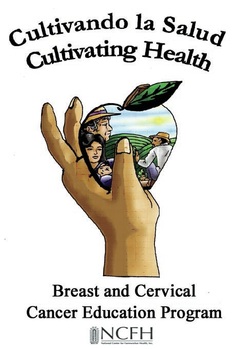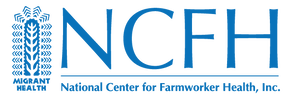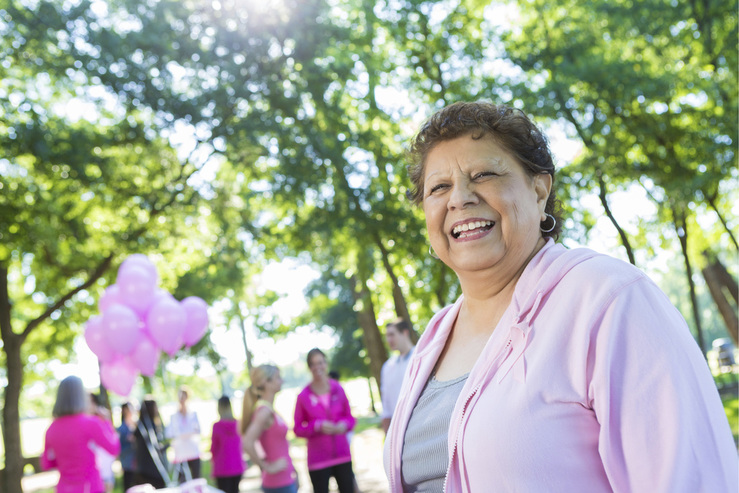|
Providing health education to patients can be a challenge. Most of the time spent with a patient at a health center is limited. For this reason, having effective health education tools available is very important. There are many traditional printed materials like brochures, pamphlets, and fotonovelas to choose from. Most of the time, staff at health centers and outreach staff only have access to these types of materials and, therefore, utilize only printed materials for their patient education. But, did you know that there are other delivery methods that can help make health education more interesting? Audiovisual tools, like digital stories, are now being used in the health arena and are helpful for different reasons. For example, digital stories can be shared with family and friends. They are portable and can be accessed at any time. They also allow users to learn at their own pace and receive feedback on their progress. According to the AHEC Clear Health Communication Program at the Ohio State University, these tools are also appropriate for users who are visually impaired, have limited reading skills, or who want to learn about sensitive health topics in a shame-free environment, becoming an effective use of audiovisual material. Digital stories have the ability to engage users in the learning process. NCFH has produced a collection of digital stories to meet the need for effective educational tools, for use by the health organizations as well as the general public. These health education tools can be used during outreach, clinical setting teaching, or one-on-one teaching to outreach and health center staff. Our digital stories are free to use and are easily accessible via our website or our YouTube channel. They are bilingual, narrated in Spanish with English subtitles. Topics range from how to access a health center to a personal story on how asthma can be managed, to learning about the Pap Test. Digital stories are a valuable health education tool that should be used more. NCFH is trying to make this happen. By: Joanna Arevalo
One in every ten Hispanic/Latino persons will develop Diabetes Type 2 after the age of 20, according to the National Diabetes Education Program. Of those 10%, nearly 12% are of Mexican ethnicity. The ethnically Mexican population, both documented and undocumented, accounts for 68% of the Agricultural Worker population in the United States.
Naturally, with Diabetes risk factors being higher within Latino populations, it is important for special vulnerable populations – like the United States’ Migrant Agricultural Workers – to have provided to them the important tools and resources for both understanding the risk of Diabetes and how to manage it if diagnosed. Diabetes Type 2 (or Diabetes Mellitus) happens when our bodies cannot process glucose (or sugar) like it used to. Sugar levels rise and our bodies try to make up for it by producing more insulin. However, after time the body cannot regulate the process and thus Diabetes Type 2 is diagnosed. Symptoms of Diabetes Type 2 often include feeling fatigued, thirsty, numbness in the feet and hands, blurred vision, and higher susceptibility to cuts and bruises that won’t heal. Agricultural Workers face a greater risk due to their specific barriers to health care. Lack of health insurance and transportation are big factors. But Dr. Keshelava also reported that workers might fear the retaliation of their superiors if they are feeling sick. Retaliation can be hours cut or being fired. The good news is there are ways to manage Diabetes Type 2 within the migrant Agricultural Worker population. A collaborative Farmworker Health Network member, MHP Salud, has programs that train Community Health Workers to go out in the fields and offer culturally appropriate education on Diabetes Type 2. NCFH, in coordination with Consumer Reports Best Buy Drugs, has created low-literacy and culturally appropriate factsheets for Migrant Health Centers to provide patients who have been diagnosed with Diabetes Type 2. Written By: Mindy Morgan Photo: iStock Although there has been substantial progress in cancer treatment, screening, diagnosis, and prevention over the past several decades, addressing cancer health disparities—such as higher cancer death rates, less frequent use of proven screening tests, and higher rates of advanced cancer diagnoses—in certain populations is an area in which progress has not kept pace. These disparities are frequently seen in people from low-socioeconomic groups, certain racial/ethnic populations, and those who live in geographically isolated areas. – National Cancer Institute  The U.S. Latina population has lower-rates of breast cancer than non-Hispanic women. However, they have a 20% greater chance of dying than other women after receiving a positive diagnosis. Many attribute this discrepancy to the social determinants of health that influence patient survival – including a lack of access to quality education and healthcare, which is exacerbated by patients’ socioeconomic statuses. The unique seasonal and migratory lifestyles of female agricultural workers further compound and complicate these issues – as do the effects of existing misinformation regarding screenings and cultural beliefs amongst this population. The necessity of consistent appointments and follow-ups for effective care proves problematic for those on the move and those working under severe occupational time constraints. Women over the age of 50 are urged to get annual mammograms in addition to performing frequent self-examinations. However, a positive exam only constitutes an initial step in the breast cancer diagnosis process. Patients must return and provide a tissue sample before the disease is confirmed. Federally Qualified Health Centers (FQHCs) served more than 2 million women over the age of 50 and 440,000 women utilized services at Migrant Health Centers in 2014. FQHCs also performed more than 470,000 mammograms and found almost 110,000 breast abnormalities last year. The National Center for Farmworker Health recognizes the need for a special focus on breast cancer outreach to the U.S. female agricultural worker. Through its Cultivando la Salud program, NCFH offers health centers and other Hispanic-serving organizations the opportunity to receive train-the-trainer instruction intended to provide program planners with the knowledge, step-by-step process, and the tools to successfully plan and develop a comprehensive breast and cervical cancer education program for the agricultural population as well as other Hispanic communities. The training includes basic program planning information from designing the program goals and objectives to developing a budget to recruitment and training of lay health workers. The program also includes an evaluative component and specialized focus on the teaching tools lay health workers will be using in the community. At the end of the training, training participants will be provided with a complete training curriculum, a program manual to guide the implementation of the program, and the CLS teaching tools for lay health workers to use in the community. By Lindsey Bachman
Photo: Steve Debenport, iStock  We have updated our Governance Toolkit to include new tools, webcasts and videos! Take a look at this unique resource that helps you understand why governance is an essential component of the health center program. It includes a Consumer Board Recruitment Training Toolkit, webcast and videos on board recruitment, roles and responsibilities, collaborations, and finance. This toolkit is part of our Performance Management Tool Box which includes tools on administration, human resources, needs assessment, service delivery, and emergency preparedness. Take a look at them! |
The National Center for Farmworker HealthImproving health care access for one of America's most vulnerable populations Archives
March 2024
Categories
All
|



 RSS Feed
RSS Feed